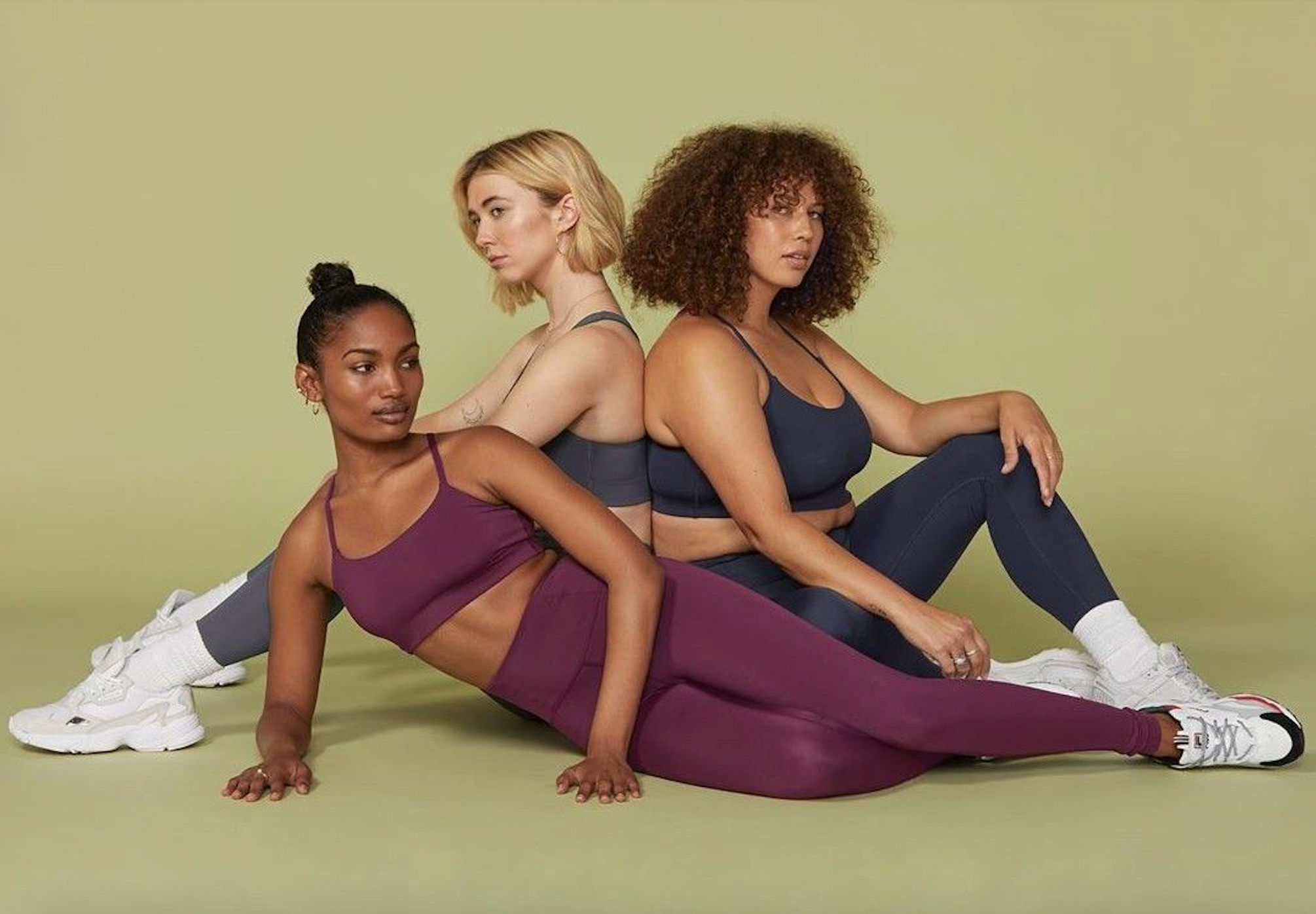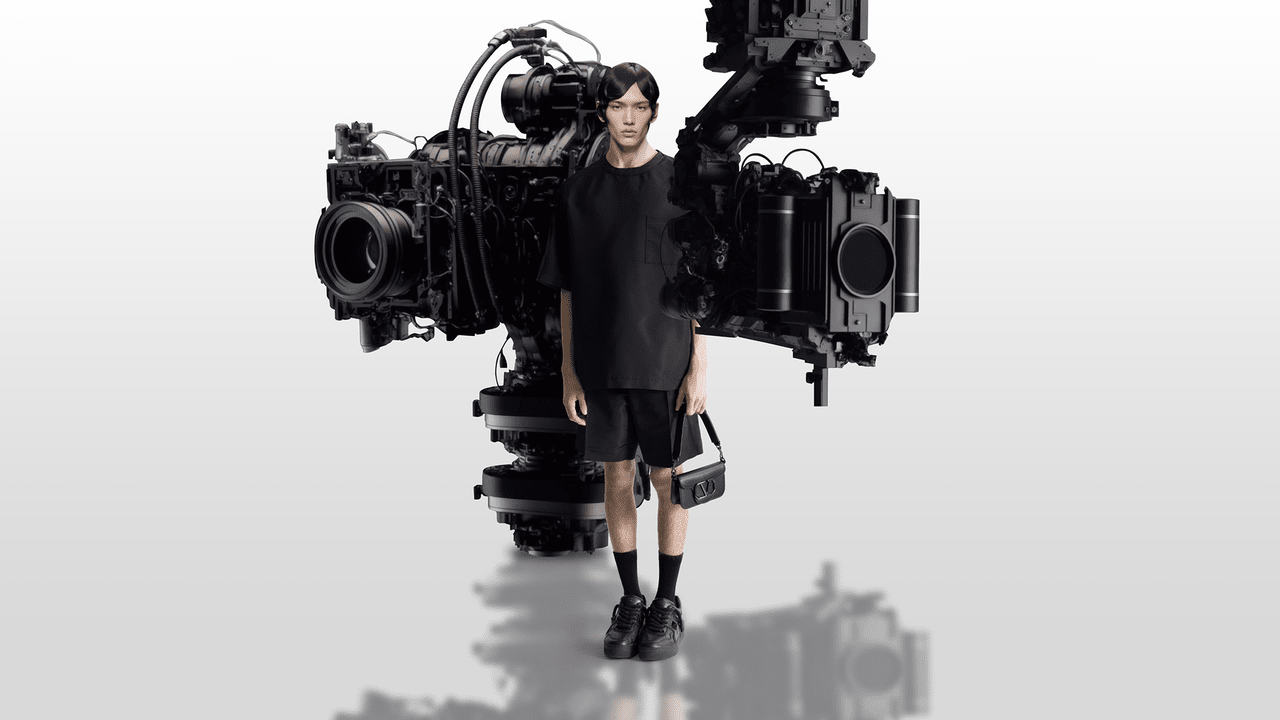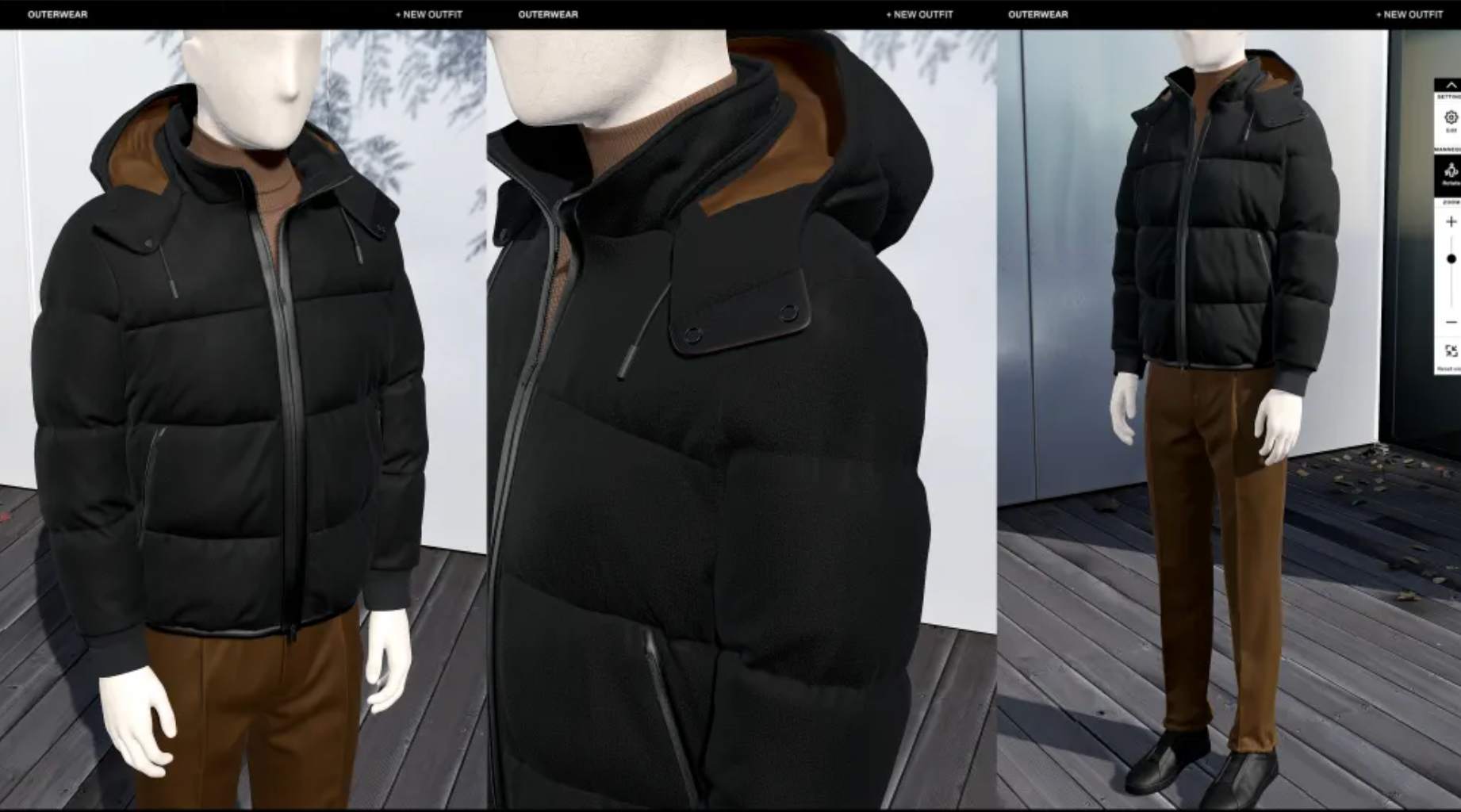Alongside its vast design potential and ability to streamline garment production, generative artificial intelligence is poised to fix one of fashion’s long-standing challenges, inconsistent sizing, and reduce return rates and boost conversions in the process.
Today, the majority of clothing is produced using run-of-the-mill, yet highly convenient, manufacturing models. Though consumers like the convenience of online clothes shopping, they don’t like the erratic sizing this approach produces. Subsequently, they yearn for a more tailored, hyper-personalized retail experience.
“AI-powered experiences will mean personal stylists and shoppers will no longer be reserved for the uber-wealthy. Data-driven personalization will deepen brand connection and convert shoppers into loyal return customers,” Max Sinclair, founder and CEO of generative-AI powered e-commerce startup Ecomtent tells Jing Daily.
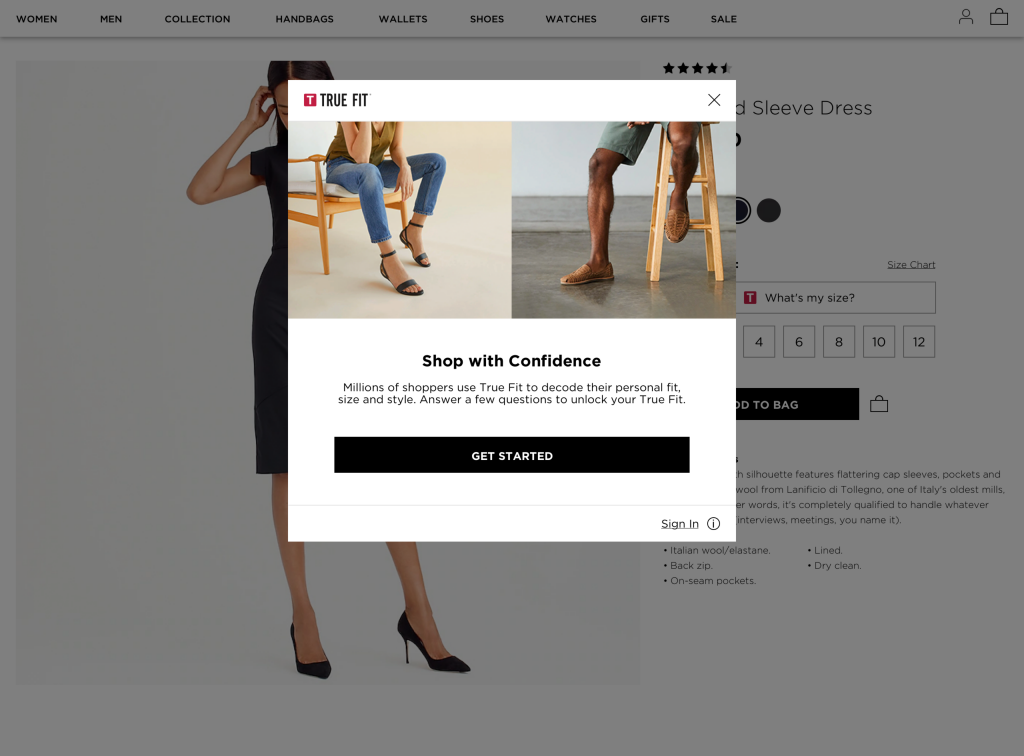
Accessible personalization#
Eighty percent of online shoppers in the US are more likely to make a purchase if retailers offer personalization, according to research by Epsilon, findings echoed by a recent Klarna survey that found 65 percent of respondents want shopping experiences to become more personalized in the future, with 23 percent stating that they would be willing to rely on AI to advise them which clothes best fit their body and style.
The rapid progress AI is making is putting personalized fashion in everyday shoppers’ reach.
“Many customers struggle with determining the correct size when shopping online (it may change from brand to brand, or market to market), which leads to uncertainty and sometimes incorrect choices,” Eda Dikmen, Marketing and Communications Manager at Pakistan-based denim manufacturer Soorty tells Jing Daily.
“Imagine if the suggestions fit the buyer’s body just right, return rates would be much lower and the overall shopping experience would be enhanced as it becomes more personal, convenient and enjoyable,” she adds.
Companies are now implementing machine learning systems that can analyze a user’s body measurements, style preferences, and even their social media activity to create personalized clothing recommendations.
Earlier this month, AI trailblazer and size advisor True Fit partnered with Shopify to revolutionize the traditional size guide. Retailers of any size can now download True Fit’s application to integrate the world's-largest machine learning dataset, coined Fashion Genome, developed by the company.
The platform reimagines the conventional size guide by leveraging AI-powered fit recommendations, a service built on the collective insights of millions of shoppers and AI enhancements.
Choosing the right size is a major obstacle in the world of e-commerce, and solutions like True Fit’s hold the potential to democratize the system and improve shopper satisfaction.
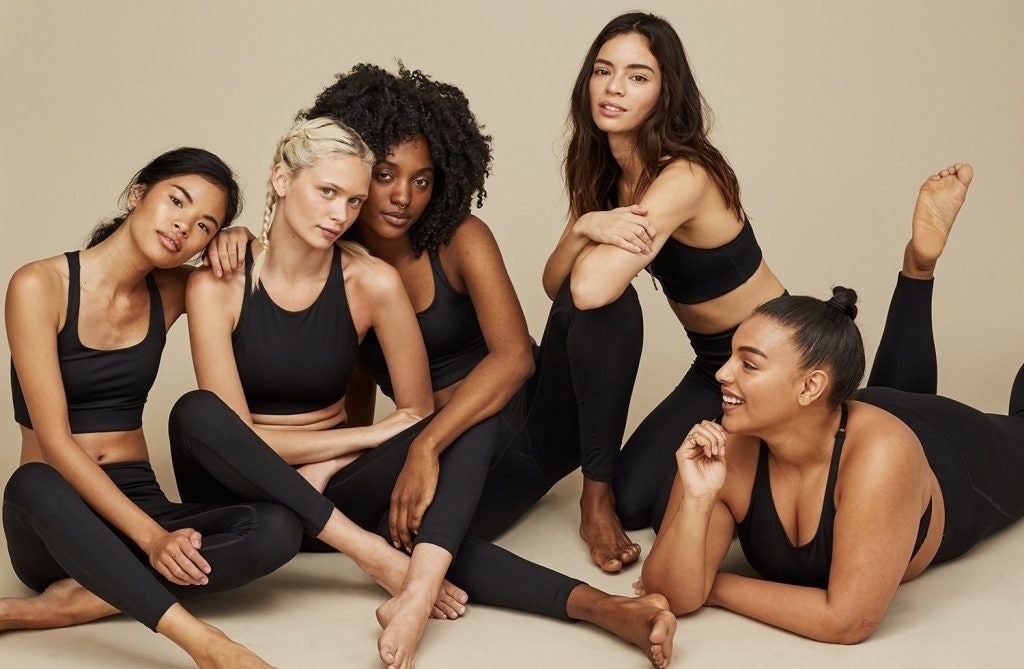
Computer-generated inclusivity#
Brands are attempting to improve inclusivity by tapping AI in their e-commerce models. For instance, shoppers will be able to input their unique measurements into features to generate a realistic model that accurately represents their body type.
The tech works by analyzing millions of data points from human body scans and comprehensive studies to determine customer body measurements and create detailed body models at scale. It then makes best-fit sizing recommendations based on this data.
Big fashion players are catching on. Eco-friendly activewear label Girlfriend Collective last month joined hands with AI sizing intelligence company Bold Metrics to deploy the business’ Find My Size solution. Since launching its AI-driven service in 2012, Bold Metrics claims that it has reduced brands’ return rates by as much as 32 percent, while increasing the conversion rate and average order value.
Levi’s also announced earlier this year that it would be implementing AI-powered models into its e-commerce strategy to diversify its lineup of models and streamline online shopping.
However, the brand quickly found itself at the center of controversy, with critics slamming the addition of AI-generated models as a way of sidestepping paying human models. Levi’s countered that its decision to deploy AI-generated models was not an “a substitute for action on diversity.”
Despite teething problems, AI’s potential is hard to ignore, especially for smaller brands that may not have access to a diverse range of models.
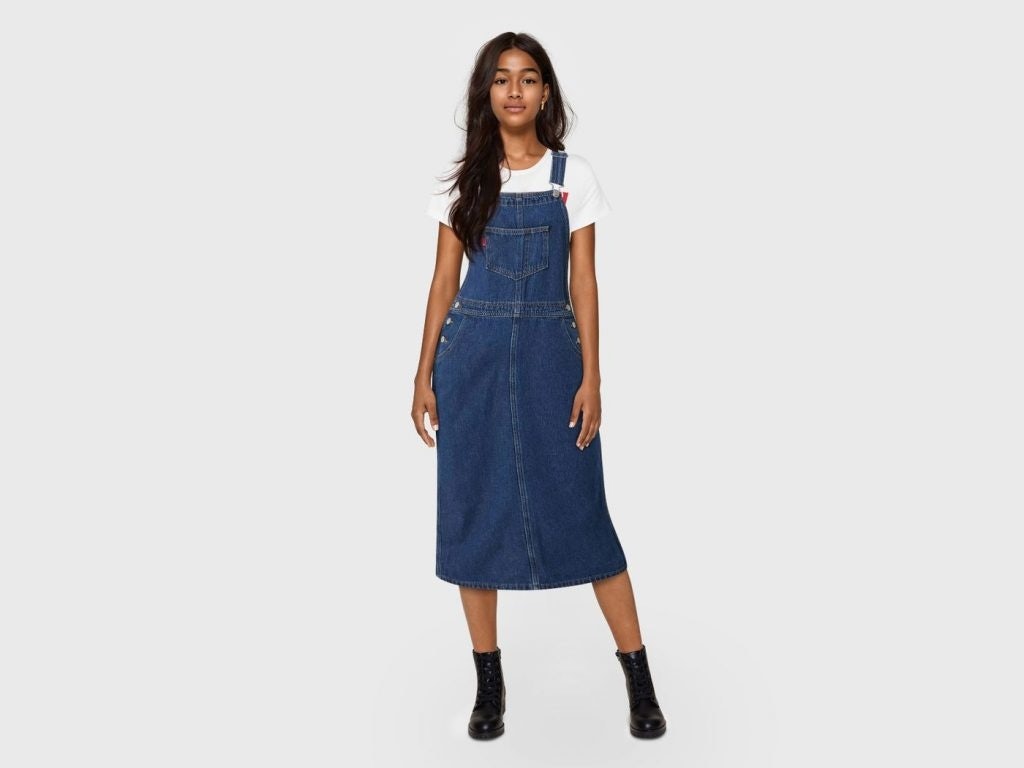
Sustainable satisfaction#
The British Fashion Council’s recent Institute of Positive Fashion (IPF) report stated that 23 million returned garments were sent to landfill or incinerated in 2022 in the UK, generating close to 750,000 tonnes of CO₂ emissions. Incorrect sizing or fit (93 percent) and product quality not meeting expectations (81 percent) were cited as the top reasons for shoppers returning clothing.
Globally, the average e-commerce return rate hovers around 20 percent to 30 percent, according to e-commerce customer support platform Richpanel.
Munich-based startup Sizekick aims to address the sustainability crisis by deploying AI in its latest size recommendation tool. Tapping the technological capabilities of textile research center the Hohenstein Institute, the company developed two new solutions, dubbed BodyFinder and the video-based BodyScanner, which can be integrated into a brand’s online store as a web app.
"Feedback from the market and future partners in the fashion and sports industries was crystal clear – people are looking to solve a real problem when it comes to sizing. They need a size recommendation solution that takes into account the fact that users have different body shapes as well as the inherent differences between individual styles and brands,” writes Sizekick CEO David Oldeen in the press release for the solutions’ launch.
With BodyFinder, AI suggests realistic body shapes for customers in seconds, which they can then select from, whereas the BodyScanner option enables users to scan their bodies using their smartphone – all they need to do is turn around once in front of the camera. Sizekick says that easy-to-use solutions like these can significantly reduce associated CO₂ emissions and offer more sustainable online shopping.
Satisfied consumers are not only less likely to return their clothes, but they are more likely to return to the store for repeat purchases. Having consumers’ measurements and sizes already stored in their chosen brand’s database can also help eliminate bracketing, the process by which a consumer buys more than one size online with the intention of returning the options that don’t fit.
“AI-powered sizing recommendation tools create a win-win scenario for all stakeholders – producers, brands, retailers and consumers. Customers enjoy a more seamless and satisfying shopping experience; they don’t need a second step of tailoring, or returning what they bought. Retailers also clearly benefit from fewer returns, higher customer retention, and valuable data insights to optimize their operations,” Dikmen adds.
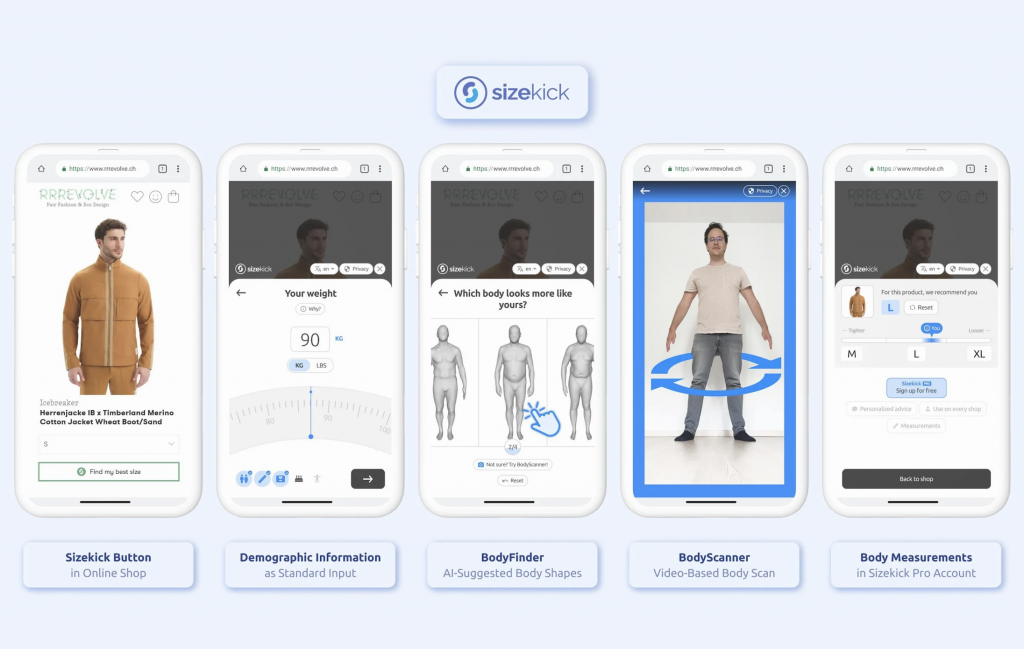
Made-to-measure upgraded#
For consumers wanting to take the personalized shopping experience a step further, AI-powered made-to-measure services are also taking off.
On August 30, AI-powered body scanning and virtual try-on solution 3DLook launched its Mobile Tailor 2.0, a proprietary product designed to equip businesses with the tools needed to digitally measure customers' bodies with unmatched accuracy. By capturing front and side photos of a customer, the technology can instantaneously generate accurate body measurements and 3D models for businesses to refer to.
The product, which uses robust computer vision pipelines and body measurement and size recommendation algorithms, aims to reduce remake and alteration costs. The company claims its service can enhance customer loyalty by up to 67 percent, cut the manual measurement process, and reduce product returns for traditional fashion e-commerce businesses by 6 percent.
Though still in its nascent stage, AI is set to disrupt and challenge e-commerce’s status quo and prove that, when it comes to fashion, one size really doesn’t fit all.
